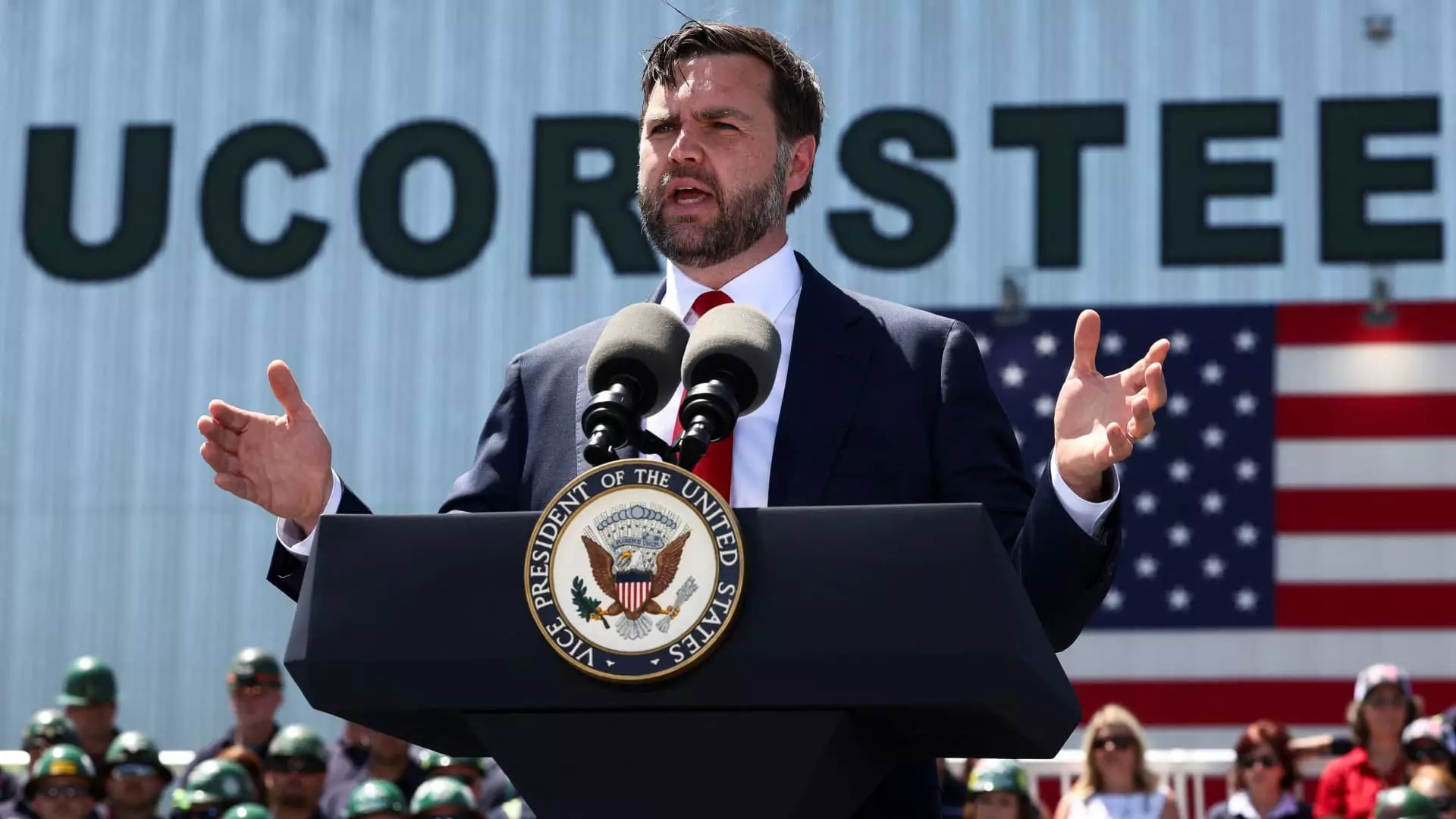In a surprising turn of events, President Donald Trump and Vice President JD Vance have teamed up to pressure the Federal Reserve into slashing interest rates. This partnership, while seemingly innocuous on the surface, poses significant risks to economic stability and governance. Vance has joined his boss in condemning the Fed’s current monetary stance, branding it as “monetary malpractice.” This war of words follows a rather tepid report from the Bureau of Labor Statistics indicating minimal inflation movement. However, the alarming undercurrent of this narrative suggests a political maneuver rather than a grounded economic strategy, raising eyebrows about the motivations behind such an aggressive stance.
The Inflation Tango: Perception vs. Reality
Recent reports reveal an inflation rate that hovers just above 2%, which is not alarming by any conventional economic measure. The Federal Reserve’s mandate to maintain price stability is delicate, and hastily cutting rates—driven by political pressure rather than solid economic data—could plunge us into an era characterized by recklessness and uncertainty. While Vance’s critique hinges on the notion that tariffs have failed to significantly elevate prices, it ignores the complex web of global economics. A knee-jerk reaction based on limited data can lead to disastrous long-term consequences. Political leaders prioritizing short-term gains over fiscal wisdom is nothing new; it’s a gross form of neglect when it comes to the broader economic landscape.
The Dangers of Political Interference
The Fed operates on a principle that should be sacrosanct: independence from political threats. The current CEO of the central bank, Jerome Powell, faces unrelenting harassment from Trump, whose desire for a full percentage point cut represents a shallow understanding of macroeconomic implications. In a world that thrives on indecision and populist rhetoric, Trump’s insistence on rate cuts is a dangerous gamble, undermining the integrity of monetary policy. It reflects a shocking trend wherein leaders prioritize loyalty to a political agenda over the complexities of economic governance.
Market Reactions and Future Implications
Despite markets currently indicating no expectation for delays in upcoming rate decisions, the ominous reality is that the threat of political interference can destabilize investor confidence. Elyse Ausenbaugh from J.P. Morgan asserts the Fed finds itself in a “tough spot,” suggesting that the waiting game can yield mixed signals. Market participants are acutely aware that pressure to act could lead to erratic financial outcomes that jeopardize long-term growth. The stakes are monumental, and the voices of reason are becoming drowned out by those seeking political favor.
Pursuing Economic Responsibility
What’s lost in this tumult is the fundamental principle that prudent monetary policy fosters not only economic prosperity but resilience. Interest rates should be dictated by comprehensive analyses and established frameworks, not by the whims of populist politicians. The reckless dissonance between economic literacy and political expedience threatens to undermine the very stability the Fed seeks to provide. If we value economic integrity, we must advocate for an independent Federal Reserve, one that eschews political dogfights in favor of responsible monetary stewardship. As the winds of electoral sentiment blow fiercely, let’s hope our financial future does not fall victim to the ambitions of those who would seek to exploit it.


Leave a Reply